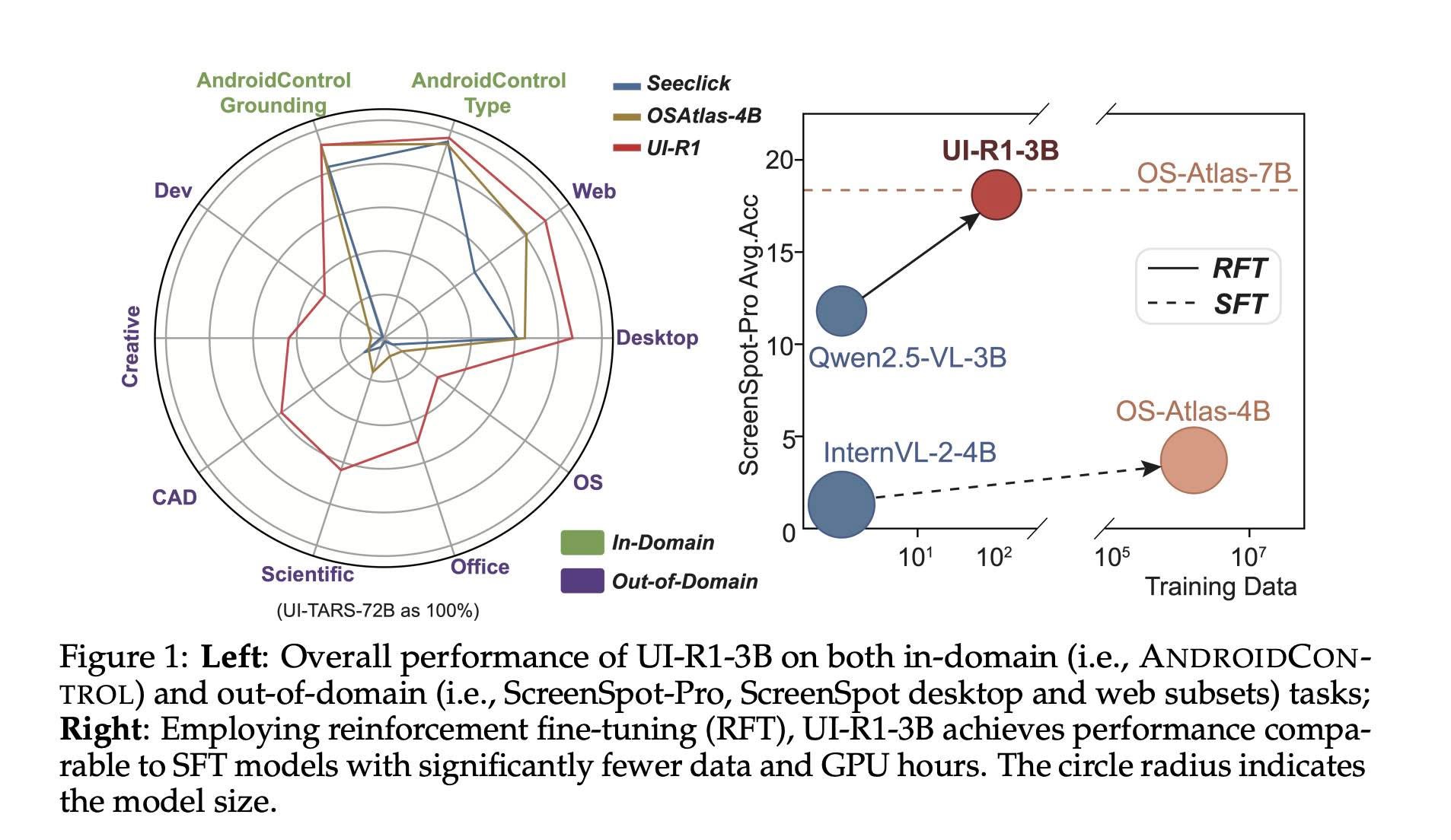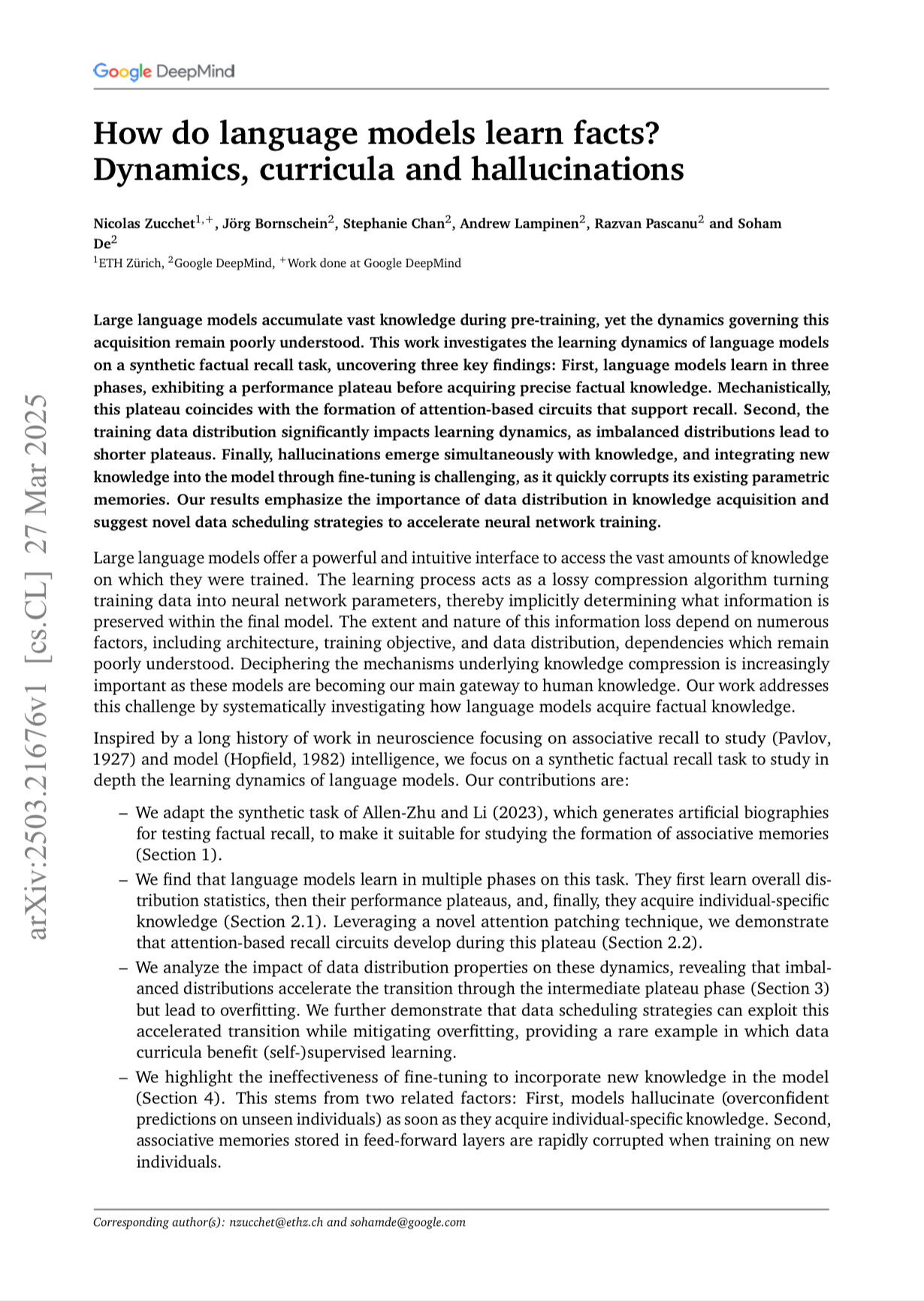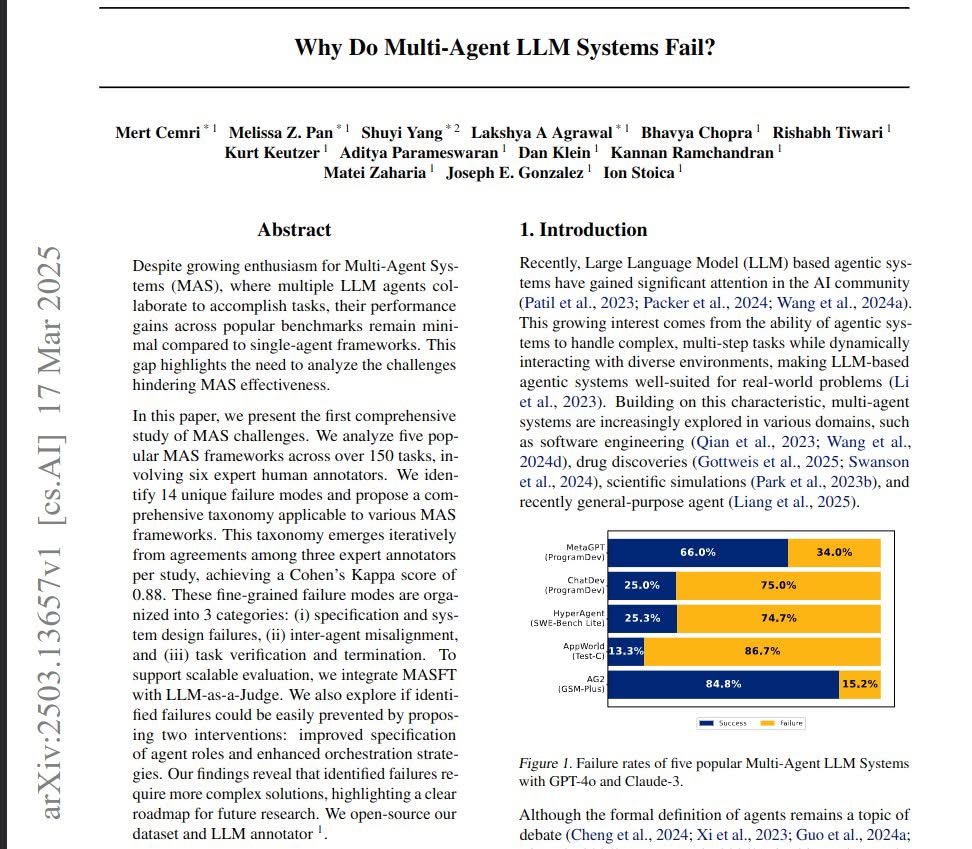AI research
-
UI-R1: Teaching AI to Navigate Your Screen Like a Pro
What if your phone could predict your next tap or swipe? UI-R1, a new AI model trained with reinforcement learning, is bringing us closer to smarter, more intuitive virtual assistants. By learning from visuals and language—not just massive datasets—UI-R1 shows how AI can interact with real-world mobile apps more accurately and efficiently.
Written by

-
How Do Language Models Learn Facts? Inside the Mysterious Memory of AI
How do large language models actually learn facts? A new study by Google DeepMind and ETH Zürich uncovers a surprising three-phase process—from slow starts to sudden insights and unexpected memory loss. These findings reveal why your AI assistant sometimes nails the answer—and sometimes confidently makes things up.
Written by

-
Why Do Multi-Agent AI Systems Keep Failing? A Look Into the Latest Research
Multi-Agent AI Systems promise intelligent collaboration between agents, but why do they so often underperform? A new UC Berkeley study digs deep into the causes of these failures—highlighting critical design flaws, coordination issues, and verification challenges—and offers a roadmap for building better, smarter systems.
Written by

-
Understanding Large Language Models (LLMs): The Basics of Their Math, Training, and Inference
Large Language Models (LLMs) have transformed the world of artificial intelligence, enabling machines to generate human-like text, answer questions, and even write code. But how do they actually work? This article breaks down the key concepts behind LLMs in a way that is easy to understand, with just enough math to show how things come…
Written by

-
The Quest for AGI: Towards Artificial General Intelligence
Artificial General Intelligence (AGI) denotes a hypothetical AI with human-like cognitive abilities, capable of solving diverse problems autonomously. Its attainment poses significant technical and ethical challenges, reflecting debates on consciousness and alignment with human values. While progress in AI continues, true AGI remains uncertain, potentially decades away or evolving gradually.
Written by

-
The Future of Artificial Intelligence
Artificial Intelligence is rapidly evolving, particularly through advancements in generative AI, large language models (LLMs), and autonomous AI agents. These innovations are reshaping industries by automating tasks, enhancing productivity, and augmenting human capabilities. However, limitations exist, such as biases and inaccuracies, necessitating careful integration and oversight. A balanced approach can maximize benefits while mitigating risks.
Written by






